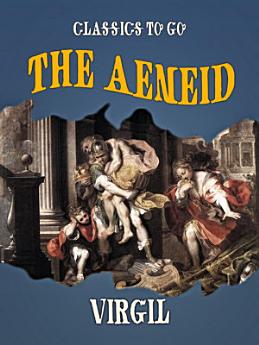The Aeneid
Mar 2019 · Otbebookpublishing
Ebook
281
Pages
family_home
Eligible
info
reportRatings and reviews aren’t verified Learn More
About this ebook
About the author
Publius Vergilius Maro, known to the world as Virgil, was a luminary of Roman literature whose life spanned from 70 BCE to 19 BCE. Born in the rural village of Andes, near Mantua in northern Italy, Virgil's humble beginnings belied the profound impact he would have on Western literary tradition. His early education in Cremona, Milan, and Rome exposed him to the rich tapestry of Greek and Roman thought, which would later permeate his works.Virgil's literary journey began with pastoral poetry, capturing the idyllic and often tumultuous lives of shepherds in his "Eclogues." These poems not only showcased his mastery of language but also subtly commented on the political upheavals of his time, including the land confiscations following the Battle of Philippi. His subsequent work, the "Georgics," is a didactic poem that extols the virtues of agriculture, blending practical farming advice with philosophical musings and mythological allusions.A close associate of Augustus, the first Roman Emperor, Virgil's works often reflect the political aspirations of his era, promoting themes of peace, stability, and the moral rejuvenation of Rome. Despite his alignment with the Augustan regime, Virgil's nuanced portrayal of human suffering and destiny has sparked debates among scholars about his true political stance.Virgil's influence extends far beyond his lifetime, inspiring a pantheon of writers from Dante Alighieri, who revered him as a guide in "The Divine Comedy," to modern authors who find resonance in his themes of exile, duty, and the search for identity. His ability to weave complex human emotions with grand historical narratives ensures that his legacy endures, captivating readers and writers alike through the centuries.
Rate this ebook
Tell us what you think.
Reading information
Smartphones and tablets
Install the Google Play Books app for Android and iPad/iPhone. It syncs automatically with your account and allows you to read online or offline wherever you are.
Laptops and computers
You can listen to audiobooks purchased on Google Play using your computer's web browser.
eReaders and other devices
To read on e-ink devices like Kobo eReaders, you'll need to download a file and transfer it to your device. Follow the detailed Help Center instructions to transfer the files to supported eReaders.







